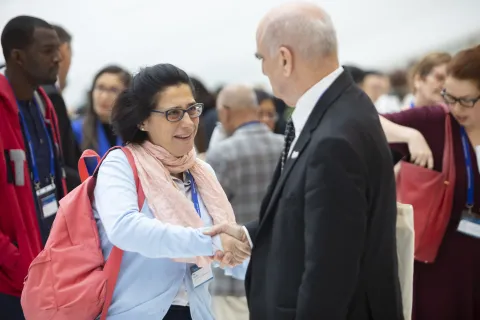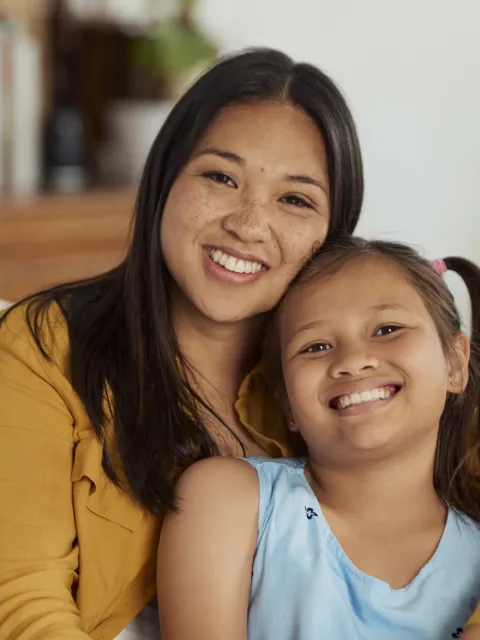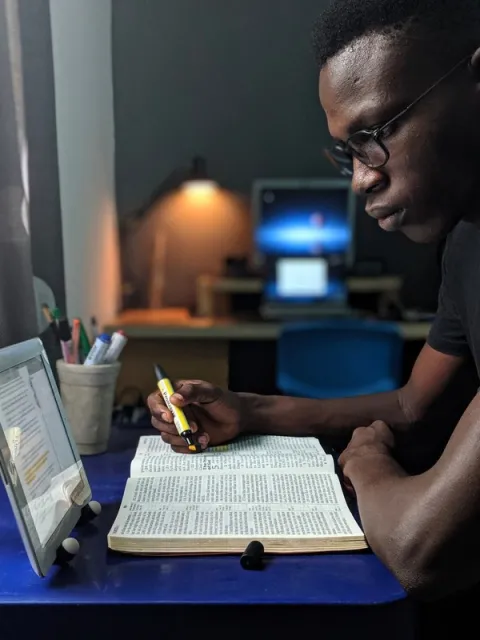New cohort of UICC’s Cancer Advocates programme brings fresh momentum to national cancer advocacy efforts
UICC welcomes 18 organisations from 14 low- and middle-income countries into the Cancer Advocates programme, supporting their efforts to improve cancer policies and services through stronger national advocacy, training, mentorship, and collaborative action.

HIGHLIGHTS
- 18 organisations from 14 countries have been selected for the 2025–2026 cohort of the Cancer Advocates programme.
- The initiative supports civil society and patient groups in low- and middle-income countries to strengthen national cancer responses.
- Projects focus on early detection, cervical cancer elimination, patient support, and people-centred care, across Africa, Asia-Pacific, Latin America, and the Eastern-Mediterranean.
- Participants receive advocacy training, mentorship, and opportunities to influence national policies and collaborate across regions.
UICC is pleased to announce that 18 civil society organisations and patient groups will join the 2025-2026 cohort of its Cancer Advocates programme. These organisations will strengthen national efforts to improve cancer policies and services in low- and middle-income countries, and make them more equitable, inclusive, and sustainable.
The new cohort represents a broad geographic and thematic diversity, with organisations from 14 countries in Africa, Asia-Pacific, Latin America, and the Eastern-Mediterranean: Brazil, Egypt, Fiji, India, Malawi, Malaysia, Morocco, Nigeria, Papua New Guinea, Philippines, Samoa, Vanuatu, Zambia and Zimbabwe.
Their projects include strengthening early detection and screening, helping to reduce the burden of cervical cancer and advance elimination goals, and supporting a people-centred approach to care, such as addressing survivorship, health awareness, and patient support initiatives.
“We have clear SMART objectives and a long-term plan for utilising the Cancer Advocates programme to strengthen national cancer advocacy in Zimbabwe. With this support, we aim to drive policy change, empower communities, and ensure that the needs of people affected by cancer are at the centre of national health priorities.”
– Venus Mushininga, Global Campaign Manager, African Cancer Organisation.
Each organisation was selected through an assessment process led by an international Advisory Group. They were evaluated on the strength of their advocacy strategies, alignment with national cancer control priorities, and the potential impact of their project and participation.
Participants in the Cancer Advocates programme benefit from exclusive opportunities:
- Technical and skills-based training in advocacy, strategy and leadership
- Mentorship from a diverse, multidisciplinary pool of professionals
- Peer-learning and collaboration with other CSOs
- Participation in events and advocacy spaces that amplify their efforts
To be eligible, organisations must be based in a low- or middle-income country and have completed UICC’s Advocacy for Improved Cancer Control course. This course equips members with foundational knowledge in advocacy, and helps prepare them for the opportunities provided by the Cancer Advocates programme. The course is hosted on UICC Connect and is delivered live each year from March to May.
“We know our goals are ambitious, but we believe that with the right support and training, we can achieve a step-change in our impact. The Cancer Advocates programme offers us the opportunity to build our capacity, refine our strategy, and ultimately deliver better outcomes for people affected by cancer in Samoa.”
– Dr Malama Tafuna’I, Interim CEO of the Samoa Cancer Society
Since its inception, the Cancer Advocates programme has supported more than 60 organisations in over 50 countries, contributing to the adoption and implementation of national cancer policies, improving financing for cancer services, and expanding representation of civil society in governance mechanisms.
The 2023–2024 cohort of 20 organisations achieved strong results, with all reporting improved advocacy skills and knowledge, 86% gaining national media coverage, and nearly 60% forming or expanding coalitions. Their efforts influenced 28 national cancer policies or plans, seven of which were formally adopted, while 92% now hold seats on national committees.
“We are pleased to welcome this new cohort of civil society organisations to the Cancer Advocates programme. Each brings valuable insight, commitment, and expertise to national cancer control efforts in their respective countries. By supporting their advocacy strategies, we aim to strengthen civil society’s role in shaping policies that are responsive to local needs, and to contribute to more equitable, sustainable progress in cancer care.”
– Rosanne Lamplough, Senior Manager, Capacity Building, UICC
Last update
Thursday 30 October 2025
